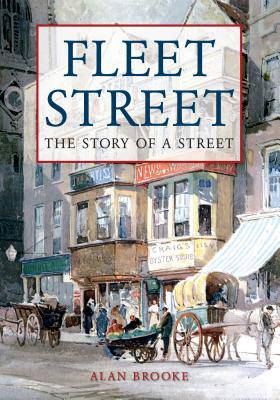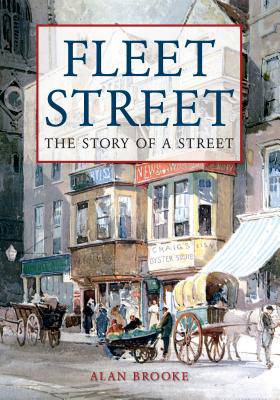
- Afhalen na 1 uur in een winkel met voorraad
- Gratis thuislevering in België vanaf € 30
- Ruim aanbod met 7 miljoen producten
- Afhalen na 1 uur in een winkel met voorraad
- Gratis thuislevering in België vanaf € 30
- Ruim aanbod met 7 miljoen producten
Zoeken
Omschrijving
Mention Fleet Street and people will think of newspapers. However this masks an equally rich history. It was one of the most important thoroughfares in London, linking the city with Westminster. For centuries Fleet Street has been famous for its association with newspapers, printers, stationers, booksellers, taverns, coffee houses, banking houses, the legal profession, places of worship, exhibitions and processions. The history of Fleet Street is diverse, fascinating, turbulent and full of colourful characters and events. London's second most important river ran through it and gave the street its name. Carmelite Friars and the Knights Templar once occupied the area until they were replaced by the legal profession. Fleet Street was ravaged by the Great Fire and then again by Second World War bombs. It was a showplace for freaks, fire-eaters, giants, dwarves, elephants and other exotic exhibits. The press had an early presence in the street when Wynkyn de Worde became the first printer to set up shop in Fleet Street in the late fifteenth century and Britain's first newspaper, the Daily Courant, began to publish there in 1702. Fleet Street once boasted the headquarters of virtually every major English daily newspaper. Despite this there have been few books about the history of Fleet Street itself. This book explores not only the press but also the many fascinating events, characters, pubs and buildings in Fleet Street and its many tributaries.
Specificaties
Betrokkenen
- Auteur(s):
- Uitgeverij:
Inhoud
- Aantal bladzijden:
- 128
- Taal:
- Engels
Eigenschappen
- Productcode (EAN):
- 9781848682290
- Verschijningsdatum:
- 15/03/2010
- Uitvoering:
- Paperback
- Formaat:
- Trade paperback (VS)
- Afmetingen:
- 163 mm x 231 mm
- Gewicht:
- 317 g

Alleen bij Standaard Boekhandel
+ 41 punten op je klantenkaart van Standaard Boekhandel
Beoordelingen
We publiceren alleen reviews die voldoen aan de voorwaarden voor reviews. Bekijk onze voorwaarden voor reviews.








